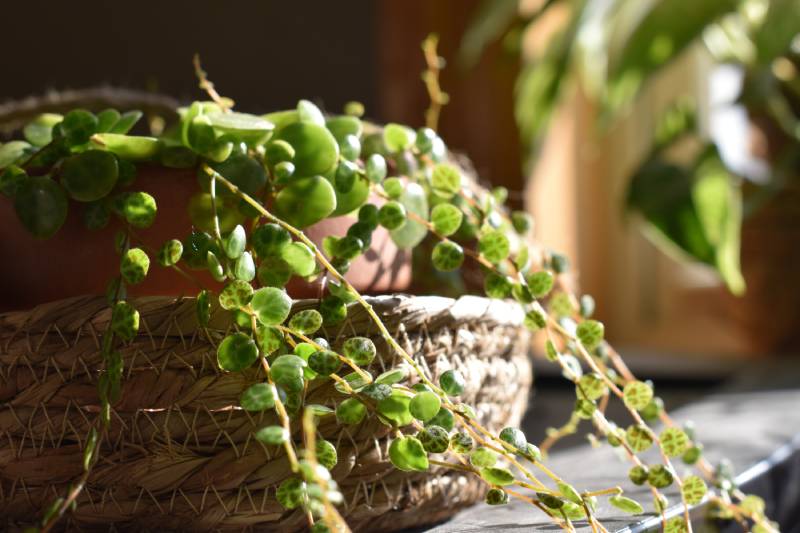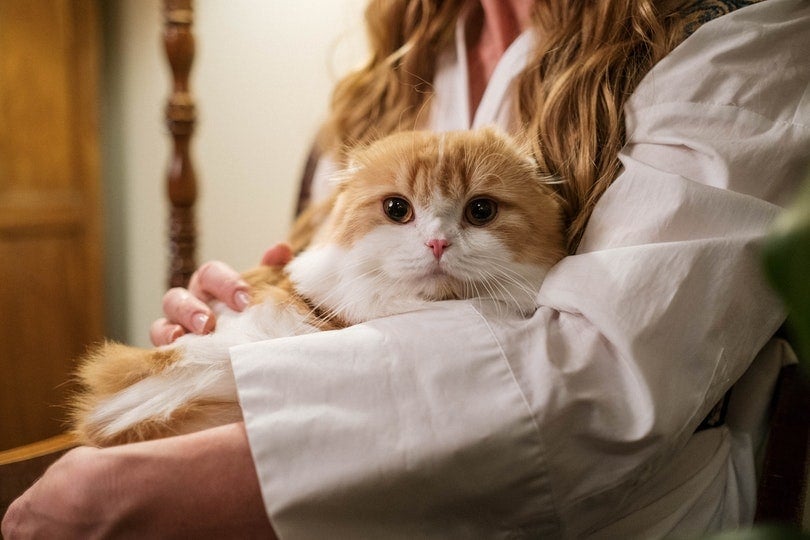Is String of Turtles Plant Toxic to Cats? Vet-Approved Facts & FAQ
Updated on

Click to Skip Ahead
Unfortunately, many of our favorite houseplants are toxic for our feline friends, potentially causing severe toxic reactions and even putting their lives in danger. Since cats adore playing with, chewing on, and even eating pieces of our plants, it is critical to learn about the plant’s properties before taking it into our homes. One such plant that we all adore is the String of Turtles. This gorgeous succulent plant will make any space spark up with charm, and the good news is—it’s entirely safe for our cats.
Read the article below to learn more about this plant’s incredible properties and ways to ensure your cat’s safety around houseplants.
Is String of Turtles Toxic to Cats?
Being one of the most popular houseplants, the String of Turtles is a favorite in many households as the main decoration piece and a real conversation starter. However, being a pet parent can drastically change how you feel about certain houseplants and how you handle your home garden. Luckily, Peperomia prostrata is not one to cause you worries. The String of Turtles is one house plant entirely safe for our cats and other pets. It is non-toxic and, therefore, an ideal choice for a house with one or more pets that like to nibble on plants.
Since cats are known to chew and nibble on our houseplants, we need to do everything to ensure they don’t accidentally ingest a plant that will make them nauseous or sick in any way. So you can safely keep and take care of this gorgeous succulent specimen, as the String of Turtles will not cause any harm to your cat.

String of Turtles Plant Properties
Now that you know the String of Turtles is a harmless houseplant, you can finally relax and read about how to take care of this gorgeous plant. The String of Turtles or Trailing Peperomia is a tiny, lovely succulent plant used because of its unique appearance as a popular addition to house plant collections. It is native to Brazilian rainforests, so it thrives in warm climates. It is an excellent choice for smaller living spaces because of its small growth. It matures only after 3 to 5 years, growing like a trailing vine. The distinctive appearance of the Peperomia prostrata is what gives it a recognizable name—each leaf resembles a miniature shell of a turtle.
The String of Turtles plant adores bright sunlight and will thrive only when given the proper amount of daily sunlight. Due to its origin, it prefers slightly moist conditions; however, they often suffer from overwatering. The soil should have adequate drainage, and it’s best to let it dry out before watering again.
Houseplants You Should Avoid with Cats

Learning which plants are dangerous for your cats is essential to prevent an accident from occurring. While you can’t stop your pet from sniffing and biting on a leaf, you can definitely choose which plants you keep in your home.
- Lilies
- Sago Palm
- Tulips
- Jade
- Aloe Vera
- Hydrangea
- Wisteria
- Dumb Cane
- Snake Plants
- Eucalyptus
- Poinsettia
- Tomato
Signs of Plant Poisoning in Cats
If you suspect your cat has been poisoned by chewing or eating plants, there are several signs to look out for. If you notice these signs, you must take your cat to the vet immediately before the more severe signs appear.
- Excessive drooling
- Difficulty swallowing
- Vomiting
- Diarrhea
- Twitching
- Irregular heartbeat
- Difficulty breathing
- Excessive drinking
- Excessive urinating
Final Thoughts
Having a collection of the most unique and wonderfully looking houseplants is a fulfilling and rewarding hobby. If you are passionate about growing houseplants but you are a cat parent at the same time, you probably understand the struggles of finding the perfect plant for your home. Lucky for you and your lovely kitten, the String of Turtles is one beautiful yet entirely safe plant for our pets.
Featured Image Credit: Natalie Wilburn, Shutterstock












